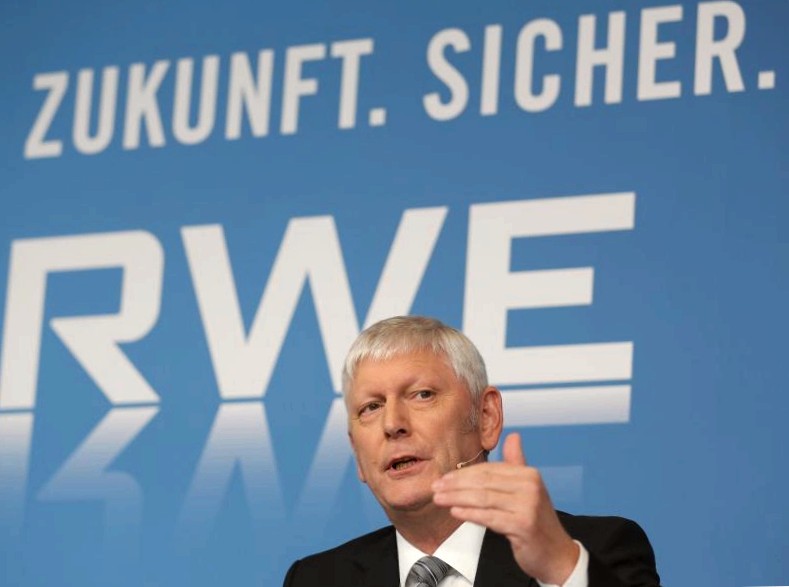
The energy company RWE goes with the demand for compensation in the billions into the discussion with the federal government about the early shutdown of lignite-fired power plants.
Compensation of 1.2 to 1.5 billion euros per gigawatt of shutdown power is fair, said chief executive rolf martin schmitz in essen on thursday. Compared to the demand for eco-electricity, however, compensation for shutdown power plants is negligible.
The coal commission set up by the federal government has proposed taking around 3 gigawatts of additional lignite capacity off the grid by 2022. RWE assumes that the bulk of the shutdowns will be in the rhineland region, where the essen-based group operates the power plants and opencast mines. There had been an initial discussion with the federal ministry of economics on wednesday. Schmitz expects negotiations to last several months.
The head of RWE justified the high level of expected compensation with the effects of power plant shutdowns on the opencast mines. Therefore, the payments had to be at least twice as high as for the lignite-fired power plants that had already been put on safety standby. If RWE were to shut down power plants to the extent demanded and reduce its lignite requirement, some 2700 jobs would have to be cut in the rhineland region, schmitz continued.
A lot of money also had to be raised for the preservation of the hambach forest," the RWE boss said. He did not name a specific amount. The company will examine whether it is possible to leave the forest stand at the hambach open pit mine in view of site safety, recultivation and water management, even if this does not make economic and operational sense. "Symbols have their price," said schmitz. The hambach forest has become a symbol of environmentalists’ resistance to lignite-fired power generation.
The environmental organization greenpeace criticized the demands. "RWE is playing poker for billions in compensation without wanting to make its own contribution to the energy transition in germany," said greenpeace energy expert karsten schmid. RWE should actively participate in the expansion of climate-protecting energies and put out to tender the land not needed for renewable energies after the reduction of the opencast mines.
In the past year, weaker lignite and nuclear power businesses have weighed on RWE. At 591 million euros, the energy company’s bottom line was about 40 percent lower than in 2017. RWE had produced less electricity than planned and was only able to benefit to a limited extent from the higher wholesale prices for electricity.
This year, the deal with eon will "write a new chapter in RWE’s history," said schmitz. The competitors have agreed on an extensive swap deal that will see RWE subsidiary innogy broken up. RWE will receive the renewable energies from innogy and eon and, according to its own statements, will become the third-largest european producer of electricity from renewable energy sources. In germany, however, RWE’s share of eco-electricity generation will be small for the time being. Of the approximately 100 gigawatts of renewable energy in germany, RWE has one gigawatt, schmitz said.